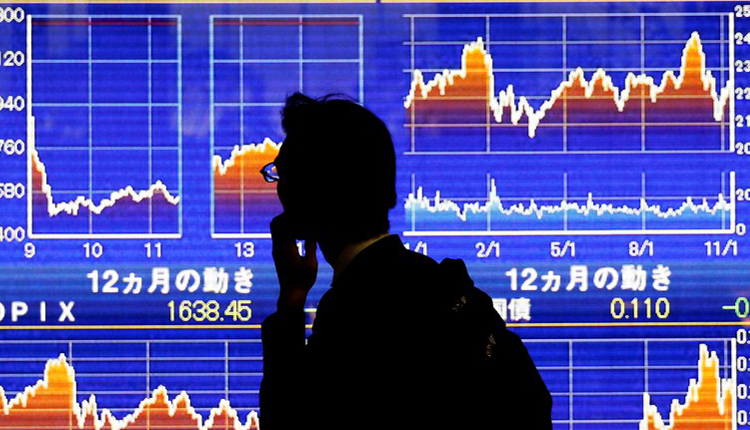Asian stocks closed higher on Friday afternoon, as hopes rise on reported progress in trade negotiations between Washington and Beijing this week.
The Shanghai composite jumped 3.20 percent to close at 3,090.76 and Shenzhen component surged 3.77 percent to 9,906.86. The Shenzhen composite bounced 3.38 percent higher to finish at 1,695.13.
Meanwhile, Hong Kong’s Hang Seng index was 0.94 percent higher by the afternoon.
Elsewhere in Asia, the Nikkei 225 in Japan rose 0.82 percent to close at 21,205.81 as shares of index heavyweight Softbank Group jumped 1.90 percent, while the Topix index added 0.56 percent to finish at 1,591.64.
The Japanese yen, widely viewed as a safe-haven currency, traded at 110.56 against the dollar after touching an earlier low of 110.92 — from highs below 110 earlier in the week.
In South Korea, the Kospi was 0.59 percent higher to close at 2,140.67, with shares of chipmaker SK Hynix paring earlier gains to finish 2.63 percent higher. Australia’s ASX 200 edged up 0.07 percent.
Overnight on Wall Street, stocks rose. The Dow Jones Industrial Average gained 91.87 points to 25,717.46 and the S&P 500 added 0.4 percent to 2,815.44 — on track for its best first-quarter performance since 1998. The Nasdaq Composite rose 0.3 percent to 7,669.17.
The moves stateside came following a Reuters report that Chinese officials made unprecedented offers regarding forced technology transfers as well as other major sticking points, as U.S. Trade Representative Robert Lighthizer and Treasury Secretary Steven Mnuchin arrived in Beijing for further negotiations.
The trade standoff between the two economic powerhouses has been closely watched by investors, amid rising concerns of an economic slowdown as the bond market flashed signals that a recession could come soon.
“I think ultimately we will be rewarded with a deal of sorts which both sides will proclaim … as a fantastic victory,” Rob Carnell, chief economist and head of Asia-Pacific research at ING Bank, told CNBC’s “Squawk Box” on Friday.
“The thing to bear in mind is this is a process,” Carnell said. “Whatever we get out of this, it’s nice to say ‘right, okay we’ll draw a line under this bit, now we have to look forward to all the other things that we haven’t sorted out’.”
The 10-year Treasury rate hit its lowest level since December of 2017 on Thursday. This comes after the same bond fell below its three-month counterpart last week — a phenomenon described as a inverted yield curve, seen as an early indicator of a recession.
The U.S. dollar index, which tracks the greenback against a basket of its peers, was at 97.129 after rising from lows below 97.0 yesterday.
The Australian dollar was at $0.7098 after weakening from the $0.71 handle in the previous session.
Oil prices gained in the afternoon of Asian trading hours, as the international benchmark Brent crude futures added 0.27 percent to $68.00 per barrel. U.S. crude futures also rose 0.42 percent to $59.56 per barrel.
Source: CNBC


